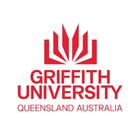Master of Environmental Engineering and Pollution Control
- Posted by Griffith University
- Home
- Courses
- Griffith University
- Master of Environmental Engineering and Pollution Control
Master of Environmental Engineering and Pollution Control
You will gain an in-depth understanding of environmental engineering problems and issues, and have the opportunity to specialise in high-demand areas such as solid and hazardous waste management, water treatment, wastewater treatment, air quality monitoring and control and renewable energy. You will develop the skills to incorporate sustainability concepts into…
Categories
COURSE DESCRIPTION
You will gain an in-depth understanding of environmental engineering problems and issues, and have the opportunity to specialise in high-demand areas such as solid and hazardous waste management, water treatment, wastewater treatment, air quality monitoring and control and renewable energy. You will develop the skills to incorporate sustainability concepts into engineering work practices from various discipline backgrounds.
My career opportunities
You will be prepared for leading environmental engineering practices in the public sector, resource related sectors, infrastructure sectors, and the consulting engineering sector. You will have the skills to work in organisations that deal with solid and hazardous waste, wastewater and air pollution control.
REQUIREMENTS
To eligible for admission to the Master of Environmental Engineering and Pollution Control, students must hold:
- a three year Bachelor degree in Engineering from a recognised University (or another tertiary education institution of equivalent standing)
- OR a Bachelor degree or Bachelor Honours degree in an environment-related field from a recognised University (or another tertiary education institution of equivalent standing) with at least two years full-time equivalent relevant work experience
- OR a four year Bachelor degree or Bachelor Honours degree in Engineering from a recognised University (or another tertiary education institution of equivalent standing).
English language requirements apply to International applicants and other applicants whose previous study was undertaken in a language other than English. The minimum English language requirements for such applicants for entry to this program are as follows: A minimum overall band score of 6.5 on IELTS (Academic) with no sub-score of less than 6.0; OR a minimum score of 575 on TOEFL; OR an internet-based (iBT) TOEFL score of 79 (no sub-score less than 19); OR no score less than 3+ in each skill of the ISLPR (conducted by ISLPR Language Services only); OR a minimum overall score of 176 (no score less than 169) on C1 Advanced (formerly Cambridge Certificate in Advanced English) or C2 Proficiency (formerly Cambridge Certificate of Proficiency in English); OR an overall score of 58 in the Pearson Test of English (Academic) with no score less than 50.
EDUCATIONAL INSTITUTION
Griffith University is ranked in the top 2% of universities worldwide and strives to create a brighter future for all by prioritising innovation and social impact. We are committed to providing international students with quality education, guidance, and support. With Australia’s most awarded teachers, Griffith University offers a full suite of undergraduate, postgraduate and research degrees in areas including architecture, construction, and planning; business and government; criminology and law; education; engineering, IT and aviation; humanities, languages and social science; medicine, dentistry and health; music and performing arts; science and environment; visual and creative arts.
Griffith University is ranked in the top 2% of universities worldwide and strives to create a brighter future for all by prioritising innovation and social impact. We are committed to providing international students with quality education, guidance, and support.
With Australia’s most awarded teachers, Griffith University offers a full suite of undergraduate, postgraduate and research degrees in areas including architecture, construction, and planning; business and government; criminology and law; education; engineering, IT and aviation; humanities, languages and social science; medicine, dentistry and health; music and performing arts; science and environment; visual and creative arts.

